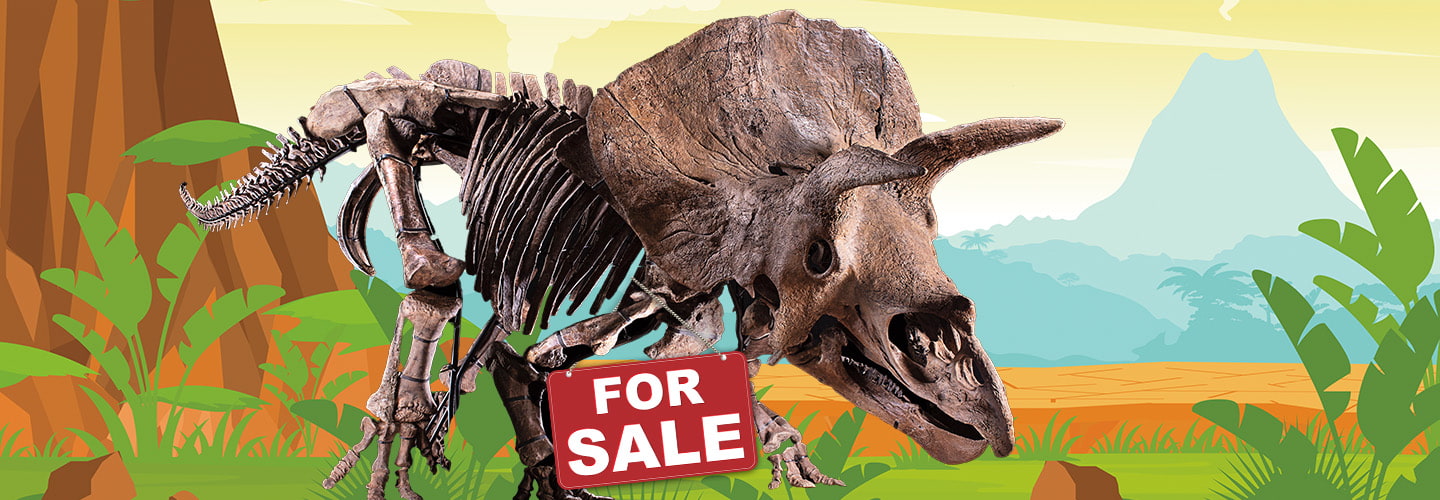How does a dinosaur get to the mall? That might sound like a riddle, but it’s no joke. Since 2014, a skeleton of a dinosaur called a Diplodocus (duh-PLAH-duh-kuhss) has been on display at a mall in the United Arab Emirates. That is a country in Asia.
The skeleton was sold at an auction. In an auction, whoever bids the most money on an item wins it. Dino fossils are often sold at auctions. Last year, a collector paid about $6 million for a T. rex skeleton.
Some collectors say owning dinosaur fossils is worth the huge price tag. Many buyers display their purchases in their homes. But some scientists say fossils should never be sold to collectors. They believe the remains belong in museums. That way, researchers can study them.

